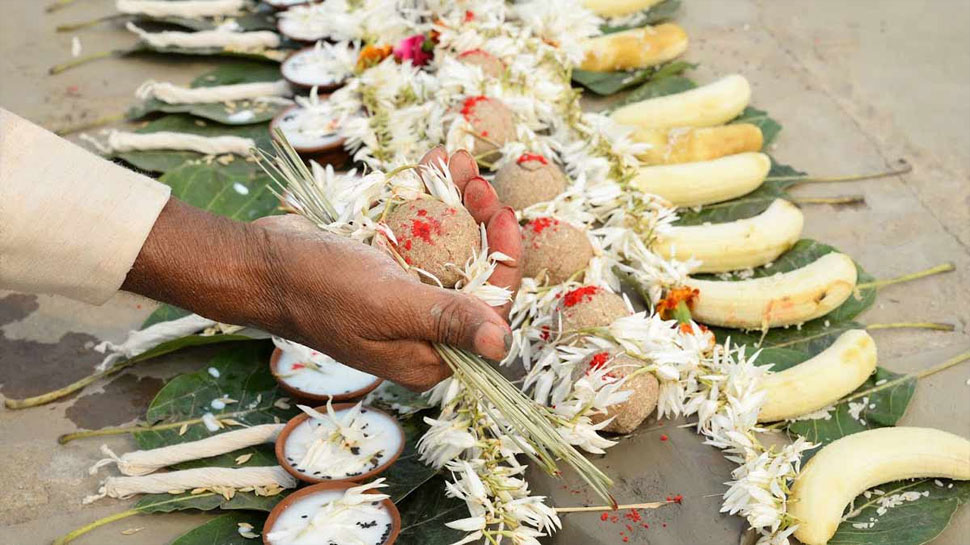Gaya Pind Daan holds immense importance in Hinduism due to its association with several religious and mythological beliefs. Here are some key reasons for the significance of Gaya Pind Daan:
- Lord Rama’s Connection: Gaya is believed to be the place where Lord Rama, an incarnation of Lord Vishnu, performed Pind Daan for his father, King Dasharatha. This association with the great epic Ramayana adds a deep spiritual significance to Gaya Pind Daan.
![]()
- Spiritual Cleansing: Performing Pind Daan in Gaya is thought to cleanse the souls of the deceased individuals and help them attain liberation (moksha) from the cycle of birth and death (reincarnation). Hindus believe that by conducting this ritual in Gaya, the ancestral souls can find peace and ultimate salvation.

- Fulfillment of Ancestral Duty: It is considered a sacred duty (dharma) for Hindu descendants to perform Pind Daan for their ancestors. By performing Pind Daan in Gaya, individuals fulfill their responsibilities toward their forefathers, expressing respect and gratitude for their contributions and seeking blessings for the family.

- Potent Blessings: It is believed that Pind Daan performed in Gaya carries special potency and can provide greater spiritual benefits to the departed souls compared to performing the ritual at other locations. The energy and sanctity of the place are thought to enhance the effectiveness of the ceremony.
- Pitru Paksha Observance: Gaya witnesses a significant influx of pilgrims during the annual Pitru Paksha period, which is a 16-day lunar period dedicated to honoring one’s ancestors. Many families choose to perform Pind Daan in Gaya during this time to maximize the benefits for their ancestors.
- Sacred River Falgu: The Falgu River, where many Pind Daan rituals are conducted in Gaya, is considered highly sacred. It is believed that the river has the power to purify the souls of the deceased and facilitate their journey to a better afterlife.
- Historical and Cultural Significance: Gaya has a rich historical and cultural heritage associated with Hinduism. It has been a center of religious activity for centuries, and the customs and traditions associated with Gaya Pind Daan have been preserved and passed down through generations.
- Pilgrimage Destination: Gaya is a prominent pilgrimage destination, drawing devotees from across India and around the world. The act of undertaking a pilgrimage to Gaya for Pind Daan is seen as a spiritually enriching and meritorious endeavor.
- Family and Community Bonds: Gaya Pind Daan often becomes an occasion for family members to come together, strengthening familial bonds and providing an opportunity to remember and share stories about their ancestors.
In summary, Gaya Pind Daan is important in Hinduism due to its historical, mythological, and spiritual significance. It is a way for Hindus to express reverence for their ancestors, seek blessings for their departed loved ones, and uphold traditional customs and rituals. The belief in the potency of Gaya Pind Daan as a means of helping ancestral souls attain liberation adds to its profound importance in Hindu religious practice.